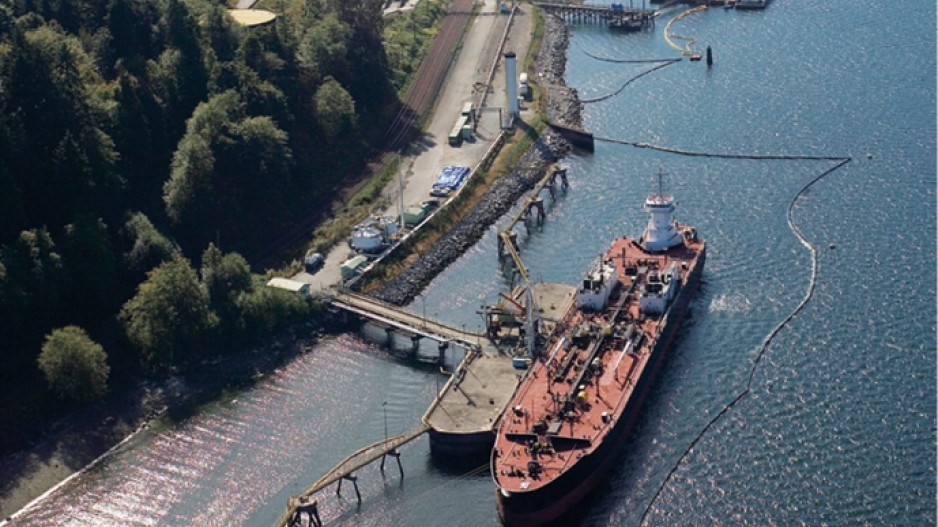Kinder Morgan has “substantially overstated” the benefits to be gained from the expansion of the Trans Mountain pipeline, according to a report released Monday (November 10) calling into question figures used by the oil company to promote the project.
The joint study from Simon Fraser University’s Centre for Public Policy Research (SFU CPPR ) and The Goodman Group consulting firm took aim at both the number of jobs and the amount of tax revenue Kinder Morgan estimated the project would create.
The oil company previously stated twinning its Trans Mountain pipeline, which would transport 890,000 barrels of bitumen daily from northern Alberta to Burnaby’s Westridge Terminals, would create 12,000 temporary construction jobs over three years.
The report, however, said the figure is actually closer to 4,000 jobs.
“The benefits are small and have been substantially overstated by Kinder Morgan,” study co-author Ian Goodman told reporters on a conference call.
“Moreover, British Columbia is not getting its fair share of the benefits.”
He pointed out that although Kinder Morgan said communities along the pipeline route would benefit from $6 million a year in incremental tax revenue, those municipalities already receive $1.7 billion.
“We’re talking about very small numbers,” Goodman said.
The report also concluded Kinder Morgan has “vastly understated” the costs of a bad to worst-case scenario that could result from the pipeline leaking.
While Kinder Morgan said an oil cleanup could cost $100-300 million, the study looked at other comparable oil disasters and found a bad to worst-case scenario would tally closer to $1-5 billion.
“Not only are the benefits for B.C. and Metro Vancouver very small, but the risks are very large,” said report co-author Brigid Rowan.
SFU CPPR director Doug McArthur said the findings raise fundamental questions about whether this project is in the public interest.
“It really is incumbent on proponents — the companies proposing these projects — to provide accurate, objective information,” he said.
“The information (provided by Kinder Morgan) is by a wide margin not, in our view, consistent with that obligation. Whether it’s by error or whether it’s by intent is something somebody else would have to answer.”




